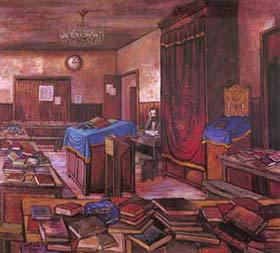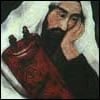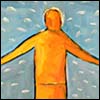From Sinai to Jerusalem, from Babylon to Cordoba, from Tunis to Cracow, the principal occupation of Jewish people was always learning Torah. Everything else was just a distraction.
So finds a non-Jewish scholar visiting Warsaw during the First World War:
"Once I noticed a great many coaches on a parking place but with no drivers in sight. In my own country I would have known where to look for them. A young Jewish boy showed me the way; in a courtyard on the second floor was the shteebl of the Jewish drivers. It consisted of two rooms, one filled with Talmud volumes, the other a room for prayer. All the drivers were engaged in fervent study and religious discussions. It was then that I found out that all the professions, the bakers, the butcher, the shoemaker, etc., have their own shteebl in the Jewish district and every free moment which can be taken off from work is given to the study of Torah."
It wasn't just a Polish fad. In Baghdad, storekeepers closed shop after three hours and went to study for the rest of the day. On the Isle of Elba, Jews had little work, so they studied from dawn to dusk. In the Carpathian hills, Roman Vishniac reports, "I found farmers with primitive tools discussing metaphysics."
Actually, the visitor to Warsaw was wrong. He assumed they were coach drivers who studied Torah. Perhaps if he had asked them they would have corrected him, that they were students of Torah who drove coaches. A.k.a. Jews.
Have It All
What's the fascination with learning Torah all day? How many times can you read the same book over and over?
Torah goes way beyond "the Book". Here are some basic categories:
|
Category |
Description |
Example |
Sample Titles |
|
Chumash |
The Creator's compact instruction manual, but often somewhat obscure — which is why we need the rest of Torah. |
“Be fruitful and multiply.” |
|
|
Halachah |
Dos, don'ts and what-ifs, with all the dots and points |
“But first get married.” |
Mishnah, Maimonides, Shulchan Aruch, Responsa of halachic authorities up to the present. |
|
Discussions, debates and differences of opinion |
“What if you just clone human beings in a test tube instead?” |
The Talmud, the commentaries, the commentaries on the commentaries, Encyclopedia of the Talmud. |
|
|
Agadah |
Parables and stories with hidden meanings |
“Once the children of a cloned man came before King Solomon…” |
Ein Yaacov, Midrash, Maharal, Stories of Tzaddikim |
|
Kabbalah |
Esoteric knowledge and the inner workings of the cosmos |
“In order to clone a human being, know these higher unities…” |
Zohar, The Book of Formation, The Book of Paradise, The Tree of Life. |
|
Chassidut |
The inner light and essence of all the above |
“Is the material a clone of higher worlds?” |
Tanya, Maamar VeYada'ata, Likkutei Sichot, Chassidut Mevueret. |
How to do Learning Torah
1) Make a Disturbance
Somewhere along the way, someone introduced the practice of sitting quietly with a book and not disturbing anybody. But that's not the tradition. Ideally, you sit at a table in a study hall (called a "Bet Hamidrash") with a friend or two and loudly discuss a text until you've gotten everyone else within earshot involved.
Learning alone? Read out loud, as though explaining to yourself. Torah has to be alive.
So when Bruria, a great scholar, once found a student of her husband learning Torah quietly she kicked him. He screamed, "I'm learning Torah!"
"You're not learning Torah," she shot back. "You're forgetting Torah! Because the only way you're going to remember anything is if you say it with every limb in your body."
2) Savor the Journey
Learning Torah isn't like any other study. Other studies are means to gain knowledge. Learning Torah is an end in itself. It's the experience of asking questions, searching for answers, getting in synch with the minds of the sages — the experience of making contact with the Divine Intellect.
That's why, in Torah learning, we study the questions just as we study the answers. Because the questions are also Torah.
3) Anchor Time
Learning Torah sits at the center of Jewish life. Everything else revolves around it. Make a set time each day to study and schedule everything else accordingly. Shut down your cell phone and immerse yourself.
4) Make It Real
Torah literally means, "instructions." It also means "light." Torah is meant to shine a light on life and show you which way to go. Whatever you learn, find a practical application and make it happen.







Join the Discussion